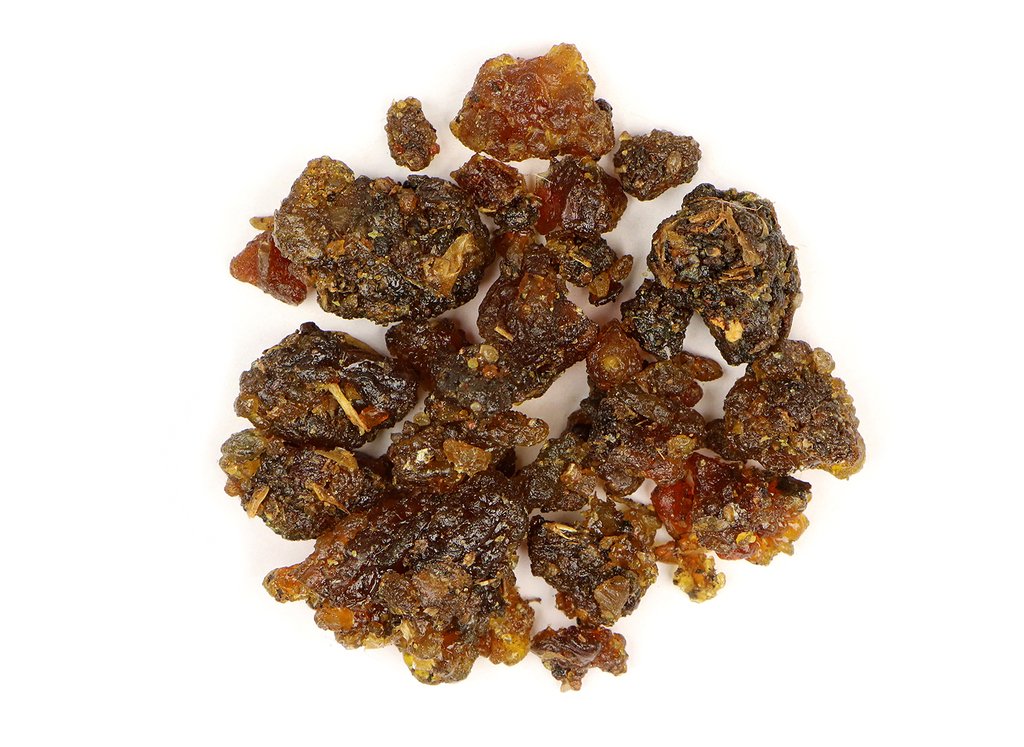 Image 1 of
Image 1 of


ORGANIC BLACK PEPPERCORN CRACKED
Botanical Name: Piper nigrum
Origin: Sri Lanka
Botanical Name: Piper nigrum
Origin: Sri Lanka
Botanical Name: Piper nigrum
Origin: Sri Lanka
Our pungent cracked black pepper is milled from our whole, organic, fair trade peppercorns. Piper nigrum is a popular spice and zesty aromatic. Our cracked black peppercorns are coarsely ground, ideal for flavorful cooking applications such as marinades and rubs. Traditionally, these cracked dried fruits were used in Ayurvedic and TCM practices.
Black pepper is one of the most commonly used spices in the world, adding warmth and zest to savory dishes. It has been popular in India for thousands of years and is now easy to find almost anywhere on the planet. It has been employed medicinally in both Ayurveda and Traditional Chinese Medicine (TCM) and more recently in herbal folk healing practices. Several derivatives of black pepper, such as piperine, have shown promise in supporting the health of the digestive system.
A member of the Piperaceace family alongside long pepper (Piper longum), and kava kava (Piper methysticum), black pepper is native to southern India and Sri Lanka and widely cultivated in the tropics. The pepper plant is a tropical perennial vine requiring a trellis or some other support such as a tree to grow along. It has aromatic, green, ovate leaves that give off a strong fragrance and greenish yellow flower spikes.
Black pepper is the most traded cultivated spice and is propagated by cuttings that are grown by the base of trees. They bear fruit three to four years after planting and cease around the fifteenth year. The black peppercorns and ground pepper of commerce are actually immature fruits that are collected as soon as they turn red and dried in the sun. The peppercorns turn black after three days of drying, and when ground, produce black pepper powder. When the fruits are left to ripen and the red outer covering is removed, then white pepper is obtained.
Black pepper has been grown in Southern India for over two thousand years. Next to salt, pepper is the most popular spice being used continually for thousands of years, and in fact, used in Indian cooking since at least 2000 BCE. Alexander the Great fought his way through central Asia making way for new trade routes which led to the eventual availability of black pepper in the West. It became increasingly popular and was highly traded by the Arabic spice merchants. Pliny the Elder (23-79 CE), the Roman naturalist, wrote in his book Natural History:
It is quite surprising that the use of pepper has come so much into fashion, seeing that in other substances which we use, it is sometimes their sweetness, and sometimes their appearance that has attracted our notice; whereas, pepper has nothing in it that can plead as a recommendation to either fruit or berry, its only desirable quality being a certain pungency; and yet it is for this that we import it all the way from India!
And, as the story goes, during the 5th century CE, Attila the Hun demanded 3,000 pounds of pepper as a ransom for the city of Rome. Although pepper was very expensive, it was still utilized often in cooking by the ancient Romans, and by the Middle Ages, became a symbol of fine cuisine. Due to the high prices of pepper, Europeans often used pepper substitutes such as chaste tree (Vitex sp.), grains of paradise (Aframomum melegueta), and myrtle berries (Myrtus communis) amongst others. However, by the 15th century Europeans ventured out to regions where spices where grown so that they could trade directly with growers, therefore cutting out the middlemen who had driven up the prices. This venture was led by the Portuguese, British, Spanish, and Dutch.
In Asia, black pepper is considered a powerful plant useful in a variety of applications beyond use as a spice and is thus a prominent herb in TCM and Ayurveda (traditional healing system from India). In both TCM and Ayurveda pepper is considered to be a pungent tasting and energetically heating spice. In Ayurveda, it is often found in the formula called 'Trikatu' which is a combination of black pepper (Piper nigrum) and also its relative long pepper (Piper longum) and ginger (Zingiber officinale) and is used to support digestion. It effects the stomach and large intestine meridians in TCM and is thus employed in digestive complaints and in cases where qi (energy) needs to be directed downward.
Precautions
Consumption of the fruit should not exceed small amounts for use as a spice. We recommend that you consult with a qualified healthcare practitioner before using herbal products, particularly if you are pregnant, nursing, or on any medications.
This information has not been evaluated by the Food and Drug Administration. This product is not intended to diagnose, treat, cure, or prevent any disease. For educational purposes only.





